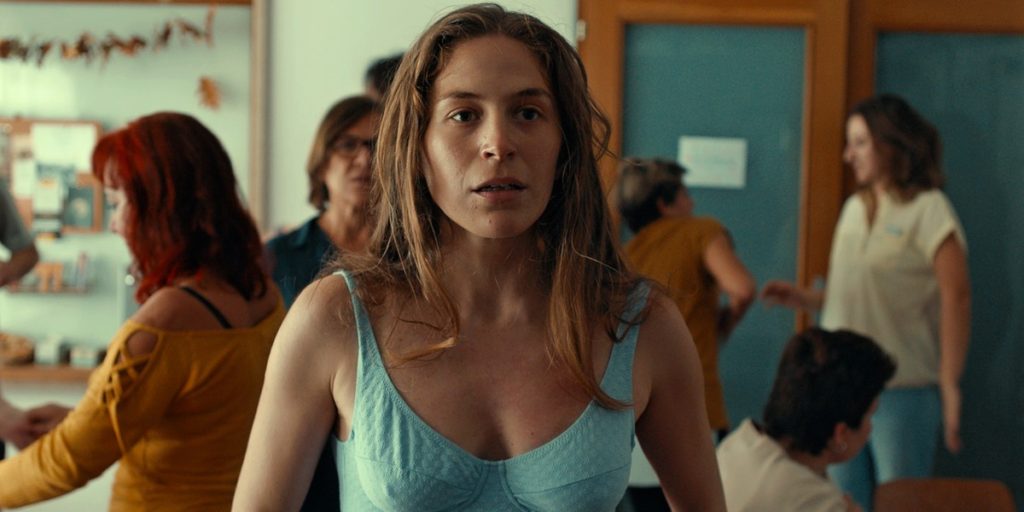Klaudia Reynicke is a screenwriter and director from Lima, Peru, now based in Switzerland. She directed her first short film, “Great Expectations NY,” in 2005. It was followed by additional shorts, and her debut feature, “Il Nido,” which premiered at the Locarno Film Festival in 2016.
“Love Me Tender” premiered at the 2019 Toronto International Film Festival on September 6.
W&H: Describe the film for us in your own words.
KR: “Love Me Tender” tells the story of a woman who lives on the fringes of the world. She suddenly finds herself catapulted out of her comfort zone having to confront the outside world, which instigates new challenges.
Her story is that of a life journey, an existential quest, a passage that other people may make at one time or another in their lives.
W&H: What drew you to this story?
KR: Non-conformist superheroes have always inspired me: the ones who stand out for their excess of humanity, their mistakes, their fears. Those who use their fragility and turn it into a weapon. Those who are out of step, on the margins, and who make it their strength. This type of superhero or anti-superhero is difficult to find in the feminine gender. So I decided to create one.
W&H: What do you want people to think about when they are leaving the theater?
KR: To have empathy for the main character even if the viewer does not identify with her.
W&H: What was the biggest challenge in making the film?
KR: I wanted to create a mixed cinema genre with “Love Me Tender” — an offbeat drama. In the script, [the story sounded more like a classical dark comedy, so I decided to shoot as if the film was a classical drama in order to bring some balance. But until the film was done, in the edit, I didn’t know if this was going to work.
W&H: How did you get your film funded? Share some insights into how you got the film made.
KR: AMKA Films Productions S.A., who produced the film, is a production house based in Switzerland. They co-produced with Swiss television, who gave us 95 percent of the funds. The rest comes automatically once you have that kind of funding.
W&H: What inspired you to become a filmmaker?
KR: The freedom to create stories, to tell them my way, and to bring them to a crowd.
W&H: What’s the best and worst advice you’ve received?
KR: Worst advice: “You need to follow the codes of script-writing to have a great story.”
Best: “You have to be honest, and believe in the stories you want to tell others.”
W&H: What advice do you have for other female directors?
KR: Use that strength you have in yourself to do anything you want and how you want it to be done.
W&H: Name your favorite woman-directed film and why.
KR: Agnès Varda’s films. She changed my way of seeing cinema and how to make films.
W&H: What differences have you noticed in the industry since the #MeToo and #TimesUp movements launched?
KR: Women might have slightly better exposure, but things still need to be done in order to have some equality in this profession.







